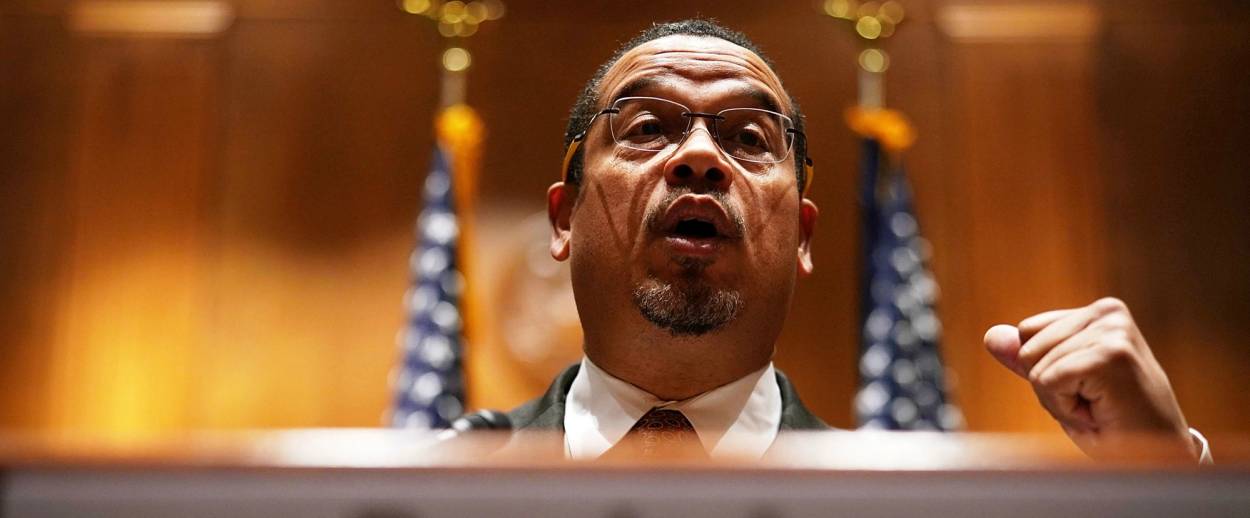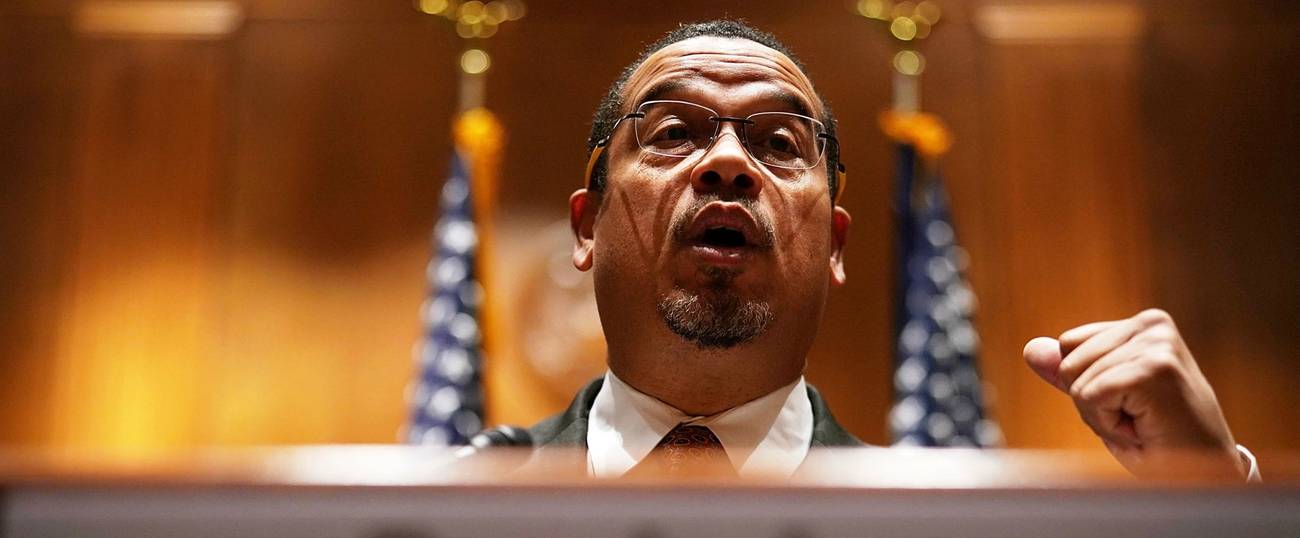Last night, U.S. Rep. Keith Ellison, the deputy chair of the Democratic National Committee, went on CNN to talk about the Supreme Court’s decision to uphold the Trump administration’s travel ban. A few minutes into the conversation, the interviewer, Jake Tapper, asked Ellison a pointed question.
“You’ve been decrying President Trump’s bigotry,” Tapper said. “Obviously you used to follow somebody who continually expressed sexist, anti-LGBTQ, and anti-Semitic bigotry, Louis Farrakhan.”
“I don’t have any support for what the individual you just mentioned stands for,” Ellison said. “Anytime someone tries to say something’s unfair or bigoted, if you’re going to say, ‘well, one time you sort of said something or somebody said you said something …”
Tapper wasn’t moved by the congressman’s attempt to distance himself from Farrakhan, for whose organization, the Nation of Islam, Ellison worked for 18 months in the mid-1990s and with whom he had admitted to dining as recently as September of 2013. “You were a follower of Farrakhan,” Tapper said, a claim which Ellison denied. “No I wasn’t,” the congressman said, “that’s not true, Jake.”
Ellison went on to argue that bringing up his past affiliation with Farrakhan was somehow unfair. “I want to say if anyone who raises concerns about bigotry then is put in a position to have to defend themselves, then we never get to talk about bigotry,” he said. “I hope that is not what your purpose is, Jake, because you’ve stood for an equal society, but if you’re gonna try to put me on the spot and have to explain myself. I didn’t pass a Muslim ban.”
Tapper, however, persisted, telling the congressman that his claim of having had no relationship with Farrakhan had been fact-checked by the Washington Post and awarded Four Pinocchios, meaning that it was found to be an outright lie. Ellison called the Post‘s reporting “wrong,” and went on to express his disappointment with Tapper for asking about Ellison’s relationship with Farrakhan.
“Farrakhan said in 2016 that you met with him in his hotel suite in Washington, D.C.,” Tapper went on. That, Ellison interrupted, “did not happen.” When Tapper continued to ask whether Ellison, then, was accusing Farrakhan of lying, the congressman said, “I don’t know if he’s lying or not. I can tell you I was in no such meeting.”
Tapper then told Ellison he’ll take the congressman at his word. “I certainly believe you more than I believe Louis Farrakhan,” Tapper added. When Ellison again complained that the conversation ought to have been focused solely on Trump, Tapper explained his reasoning. “You were talking quite a bit about the bigotry in your view of President Trump, the bigotry in your view of this travel ban,” he said. “I thought it was worth asking about somebody, a bigot, with whom you used to associate, though you have distanced yourself and condemned him since.”
Tapper deserves every praise for asking the tough and necessary questions. And Ellison ought to have done better than try again to deny what has already been repeatedly proven. No worthwhile conversation about bigotry can proceed without courage and candor.

